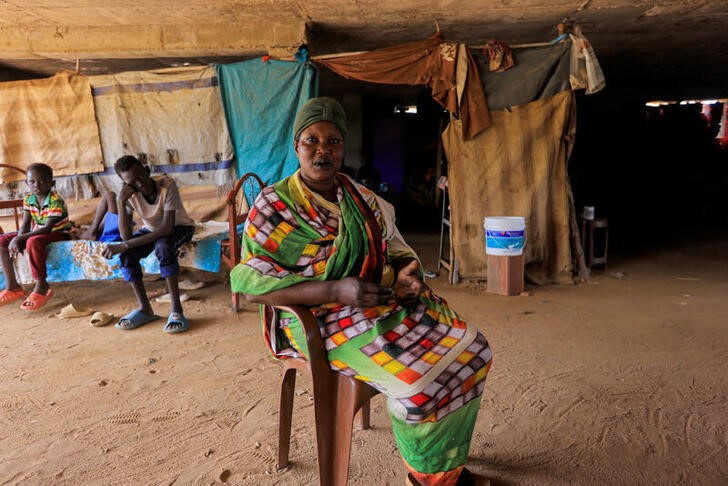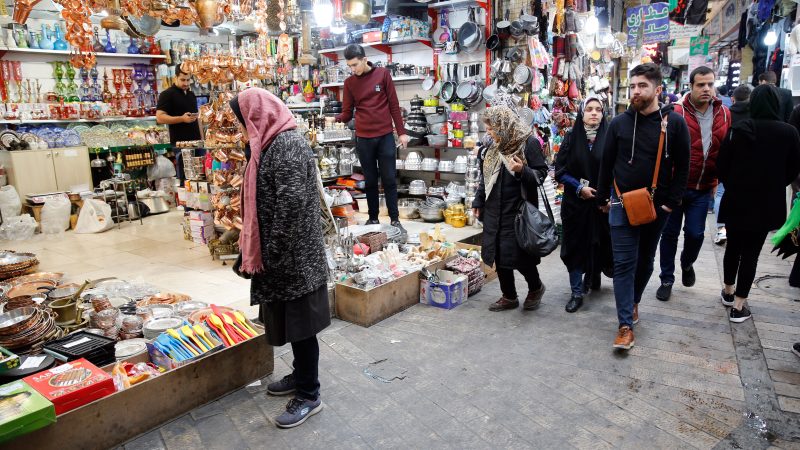South Sudan And The US To Coordinate Deportees' Return

Table of Contents
Details of the US-South Sudan Repatriation Agreement
The agreement between the US and South Sudan on the repatriation of deportees represents a significant step forward in managing the flow of migrants between the two countries. While the exact details may not be publicly available in their entirety due to diplomatic sensitivities, key points gleaned from official statements and press releases highlight a commitment to a more structured and compassionate process.
-
Timeline for Implementation: The agreement likely outlines a phased implementation, starting with pilot programs and gradually scaling up operations as procedures are refined and resources are allocated. Specific timelines are often kept confidential during the initial stages to allow for flexibility and avoid potential disruptions.
-
Specific Procedures for Identifying and Processing Deportees: The agreement will detail the procedures for identifying South Sudanese nationals subject to deportation, ensuring due process is followed and individual circumstances are considered. This likely involves close cooperation between US immigration authorities and South Sudanese diplomatic missions.
-
Roles and Responsibilities of Both Governments: The US will likely take the lead in identifying and processing deportees within its jurisdiction, while South Sudan will be responsible for receiving and assisting returnees upon arrival. This includes coordinating logistics, providing necessary documentation, and facilitating the integration process.
-
Funding Mechanisms for the Repatriation Process: Funding is likely to be a shared responsibility, with potentially contributions from both governments, as well as from international organizations like the UNHCR and IOM. The exact breakdown will depend on the specifics of the agreement and the overall scale of the repatriation efforts.
-
Involvement of International Organizations: International organizations such as the UNHCR (United Nations High Commissioner for Refugees) and the IOM (International Organization for Migration) are expected to play a crucial role. They will provide technical expertise, logistical support, and potentially financial assistance in ensuring a smooth and humane repatriation process.
Addressing Humanitarian Concerns of Deportees
The repatriation of South Sudanese citizens raises significant humanitarian concerns. The agreement needs to explicitly address these issues to ensure the well-being of returning individuals.
-
Provision of Assistance Upon Arrival: Upon arrival in South Sudan, deportees will require immediate assistance, including food, shelter, medical care, and essential supplies. This will require a coordinated effort between the South Sudanese government, humanitarian agencies, and local communities.
-
Reintegration Programs and Support Services: Successful reintegration into South Sudanese society is critical. This requires comprehensive programs addressing various needs – access to employment opportunities, education, healthcare, and psychosocial support, especially for those who experienced trauma.
-
Addressing Potential Security Concerns for Returnees: Security concerns need to be addressed to prevent returnees from becoming vulnerable to exploitation or violence. This could involve providing security escorts to their destinations, facilitating access to safe housing, and establishing community-based support mechanisms.
-
Focus on Vulnerable Groups: Specific attention must be given to vulnerable groups such as women, children, the elderly, and those with disabilities. They often require specialized assistance and protection throughout the repatriation and reintegration process.
The Broader Context of South Sudanese Migration
Understanding the reasons behind South Sudanese migration to the US is crucial to addressing the root causes of the issue.
-
Conflict and Political Instability in South Sudan: Decades of civil war, political instability, and human rights abuses have driven mass displacement and migration from South Sudan. This is a primary driver of South Sudanese seeking refuge abroad.
-
Economic Hardship and Lack of Opportunities: Poverty, lack of employment opportunities, and limited access to essential services like healthcare and education force many South Sudanese to seek better prospects elsewhere. This economic desperation fuels migration.
-
Environmental Factors: Environmental factors like prolonged droughts and famine contribute significantly to food insecurity and displacement, leading to increased migration. Climate change exacerbates existing challenges and forces people to leave their homes.
-
Previous Repatriation Efforts and Their Successes/Challenges: Past repatriation efforts can offer valuable lessons. Analyzing past successes and challenges helps refine the current approach and improve the effectiveness of the agreement between the US and South Sudan. Understanding the shortcomings of previous efforts is key to better planning.
Potential Impact and Future Collaboration
The US-South Sudan repatriation agreement holds significant potential for both countries.
-
Improved Bilateral Relations: The agreement could significantly improve bilateral relations between the US and South Sudan by demonstrating a commitment to collaborative problem-solving in a complex area.
-
Reduced Strain on US Immigration Systems: A well-managed repatriation process can reduce the strain on the US immigration system, freeing up resources to focus on other immigration challenges.
-
Potential for Future Collaborations: Successful cooperation in this area could pave the way for broader collaboration on development and humanitarian aid, bolstering the overall relationship between the two nations.
-
Challenges That Might Arise During Implementation: Challenges such as logistical difficulties, funding constraints, and bureaucratic hurdles are likely to arise. Proactive planning and strong communication between the involved parties are essential to mitigate potential obstacles.
Conclusion
This collaboration between the US and South Sudan on the repatriation of deportees represents a crucial step toward addressing the complex realities of migration and refugee flows. The agreement’s success hinges on effective implementation, addressing humanitarian concerns, and fostering continued cooperation. The coordinated effort will hopefully create a model for humane and efficient repatriation processes.
Call to Action: Stay informed on the progress of this critical initiative to coordinate the return of South Sudanese deportees. Follow updates on government websites and international organizations involved in the repatriation process. Learn more about the complexities of South Sudanese migration and how you can contribute to supporting returning citizens.

Featured Posts
-
 Evaluating The Damage Trumps Trade Policies And The Future Of Us Finance
Apr 22, 2025
Evaluating The Damage Trumps Trade Policies And The Future Of Us Finance
Apr 22, 2025 -
 Karen Read A Year By Year Account Of Her Murder Trials
Apr 22, 2025
Karen Read A Year By Year Account Of Her Murder Trials
Apr 22, 2025 -
 Blue Origins Rocket Launch Delayed Subsystem Problem Forces Cancellation
Apr 22, 2025
Blue Origins Rocket Launch Delayed Subsystem Problem Forces Cancellation
Apr 22, 2025 -
 The Impact Of Tik Tok On Trade Circumventing Trump Tariffs
Apr 22, 2025
The Impact Of Tik Tok On Trade Circumventing Trump Tariffs
Apr 22, 2025 -
 New Business Hotspots Across The Country An Interactive Map
Apr 22, 2025
New Business Hotspots Across The Country An Interactive Map
Apr 22, 2025
